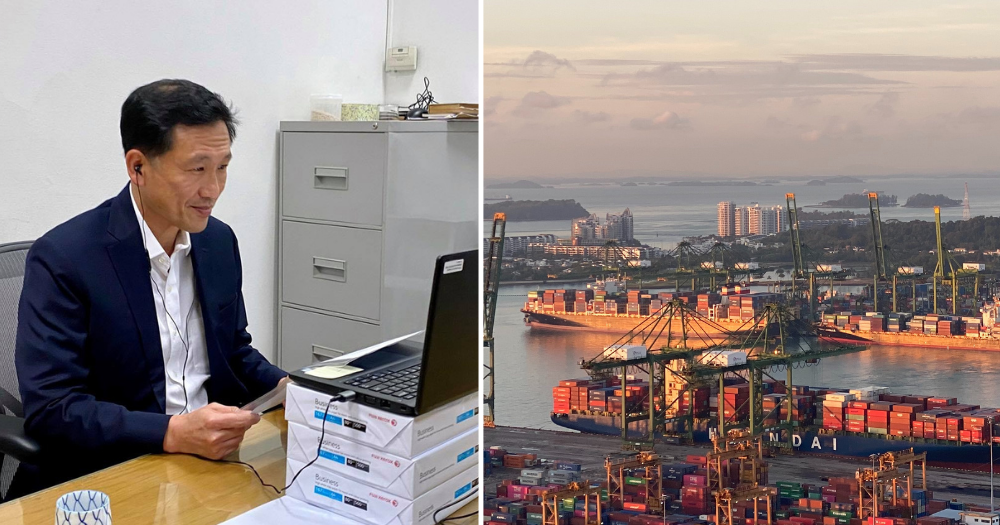On Sep. 17, several countries, including Singapore, came together to discuss and share insights on decarbonising the shipping industry.
The webinar was organised by the International Maritime Organisation (IMO) — the United Nations agency for shipping — and was titled "Future of Shipping: Decarbonisation".
It saw over 500 participants from 63 countries tuned in, according to a Marine Port Authority press release.
This discussion comes as conventional travel and trade industries are being rethought for the potential of being rebuilt or restructure in the midst of the pandemic.
Moving towards zero-carbon fuel
Singapore's Minister for Transport Ong Ye Kung gave an opening address for the webinar.
During his speech, Ong described the maritime sector as Singapore's "lifeblood".
In light of climate change, Singapore is committed to looking at ways for the shipping industry and the maritime community to become more sustainable in the long run.
Ong elaborated on some other efforts to green the maritime industry.
This includes the new fully automated Tuas Port, the largest one in the world, which produces about half the carbon emissions intensity as compared to 2005 levels.
The government has also been encouraging the use of cleaner fuels liquefied natural gas (LNG) — which has a lower carbon footprint than fossil fuels — for vessels and exploring the electrification of harbour craft.
Nevertheless, Ong noted that Singapore accounts for 0.1 per cent of global carbon emissions, and highlighted that climate change is a problem that cannot be solved alone.
"Even if there is zero emission by Singapore, we still cannot move the global climate change needle. But what we can do here can be a useful reference for the rest of the international community, and that makes us a potential catalyst for change."
NextGEN
To help tackle emissions produced by the maritime industry, the IMO and Singapore introduced a new platform, NextGEN, to act as a common ground to facilitate the sharing of information on decarbonisation initiatives across stakeholders and between countries.
It will also "identify opportunities and gaps for decarbonisation in the global shipping ecosystem, and create important networks and platforms for collaboration."
Ultimately, the IMO's goal is to reduce the total annual greenhouse gas emissions by at least 50 per cent by 2050, as compared to 2008.
Efforts to make the sector more sustainable
If the sector is left unchecked, maritime pollution could account for 17 per cent of global emissions by 2050.
To reduce carbon emission, more effort must be put into researching zero carbon marine fuels, like bringing together "interested stakeholders from public and private sectors", according to IMO Secretary-General Kitack Lim called for.
Most ships typically utilise conventional heavy fuel oil, which produce large amounts of carbon emissions and greenhouse gases, thus contributing to climate change.
At the moment, alternative renewable, low-carbon fuels include hydrogen, ammonia, and biofuels.
However, the process of producing hydrogen fuel reportedly generates as much carbon dioxide as it offsets, while biofuels are only as sustainable as their source.
The latter is also difficult to source on an industrial scale.
We deliver more stories to you on LinkedIn
Top photo from Ong Ye Kung / FB and Unsplash
If you like what you read, follow us on Facebook, Instagram, Twitter and Telegram to get the latest updates.
